Realists of a Larger Reality: Le Guin, Steering the Craft & Writing Worlds at the Barbican
A few weeks after completing Steering the Craft—Ursula K. Le Guin’s brilliant guide for 21st-century writers—I stumbled upon Writing Worlds, a fascinating event at the Barbican. The timing couldn’t...
… have been better, offering a chance to reflect on the event through the lens of Le Guin’s timeless wisdom on writing. In this post, I’ll share key insights and moments from the panel and explore how Steering the Craft continues to shape today’s writers and reflect on how the discussions resonated with my own journey in story crafting. Here we go.
“We need realists of a larger reality”
This is one of the amazing remarks from the legendary Ursula K. Le Guin’s speech at the National Book Awards in the US, 4 years before her departure from our world and the one that leaves a long-lasting mark on many minds. I think she cannot be more relevant than this time with where the world is going to. I think she should and will be quoted even more in the coming years ahead of us.
This remark was also the inspiration – along with hundreds of others - why I decided to read her amazing Steering the Craft book as I carry on my journey of crafting stories. It is defined as “A twenty-first century guide to sailing the sea of story”. In ten chapters she beautifully and practically devises the main components of a narrative, along with addressing modern challenges and opportunities for today’s writers and writing groups with great writing exercises which I’ve completed a few weeks ago with great pleasure.
“Both the meaning and the beauty of the writing depend on sounds and rhythms”
As an amateur choral singer from a young age, I’m always fascinated by the fact of how words and narrative have music and all the elements music has, rhythm, tempo, dynamics, its own unique maths etc - in them. We’re used to seeing lyrics in music, but often overlook the fact that words and sentences themselves can have their own music. That’s why this reference book’s opening chapter being “The Sound of Your Writing” speaks me most I believe, perfect entry to draw me further into this guide book. “Both the meaning and the beauty of the writing depend on sounds and rhythms.” Who could disagree.
A couple of weeks after I finished the book and all the very playful writing exercises in it, I came across an interesting event, Writing Worlds, at the Barbican which I couldn’t have missed.
It was a panel chaired by Susanna Davies-Crook mainly discussing the book, the panelists’ experience with the book along with asking the question “how do artists make worlds and imagine new possibilities?”
One of the panelists, author Season Butler talked about how she wrote her debut novel, Cygnet, by taking Steering the Craft as her guide. She positioned the book as the journey of a “cultivation of the writer who is reading it, writing things using it and being transformed on the way along” and that was what made Steering the Craft so special. Her reading from her novel was brilliant, and I’ve tried to capture an excerpt for you to listen to below.
Sammy Lee and Sarah Shin made a great presentation of their mythical game world, Mirror: The Mountain with non-linear storytelling inspired by archetypes – obviously inspired by Ursula K Le Guin’s world.
Then came writer and director Siri Rodnes’ presentation which took us through her upcoming film she’ll be directing based on Ursula K Le Guin’s fascinating sci-fi short story Nine Lives, set in a faraway planet called Libra where a ship of ten clones lands to exploit a mine that two humans (non-clone) discovered. An earthquake destroys the mine, killing nine of the ten clones, leaving the last one to learn to live as an individual, an amazing short story. This was particularly interesting to me as I’m writing my fourth novella, the Starseeker’s Song set in another faraway planet called Xithara where the protagonist is trying to understand the Xitharians with very fluid nature and overcomes many challenges along the way. It was fascinating and inspirational to listen to how Rodnes made use of Ursula K Le Guin’s light all along the way.
From the diversity and richness of the projects discussed, my admiration for Le Guin’s influence only deepened. Each speaker had drawn from her work in different ways—whether through storytelling structure, world-building, or the deep philosophical questions her writing raises. It was inspiring to see how Steering the Craft had shaped not just writers but also filmmakers, game designers, and creative thinkers across disciplines.
As the panel unfolded, it became clear that Le Guin’s approach to writing—centred on rhythm, sound, and the fundamental truths of storytelling—continues to shape new generations of creators. The panelists explored how speculative fiction, far from being mere escapism, helps us confront real-world dilemmas and reimagine the future.
“Science must not replace pain, because when that kind of catastrophe happens, it has no mercy.” Ariana Reines
When the event ended, we were invited to a Conservatory Takeover, where a writer or poet took the stage in the cozy atrium of the Barbican—a hidden gem I hadn’t known existed, with its peaceful, tucked-away charm. The space, surrounded by greenery and pouf chairs, created an intimate and inviting atmosphere. Meeting the tender and deeply heartfelt poetry of New York writer Ariana Reines was the perfect finale to an already inspiring day. Reines read powerful poems and essays from her book Wave of Blood with incredible energy and intensity, sharing glimpses of her brave life along the way. Her words resonated deeply, touching our souls and leaving me on a crescendo as I walked away from this unforgettable event.
As I left the Barbican that evening, below quote from Ursula K. Le Guin lingered in my mind, making me feel more certain than ever, no matter at what stage we are in our writing, that the stories we tell—and how we tell them—matter.
With love,
Sinem


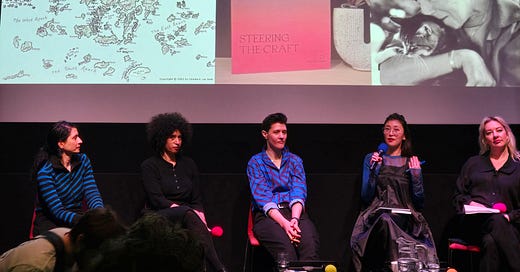



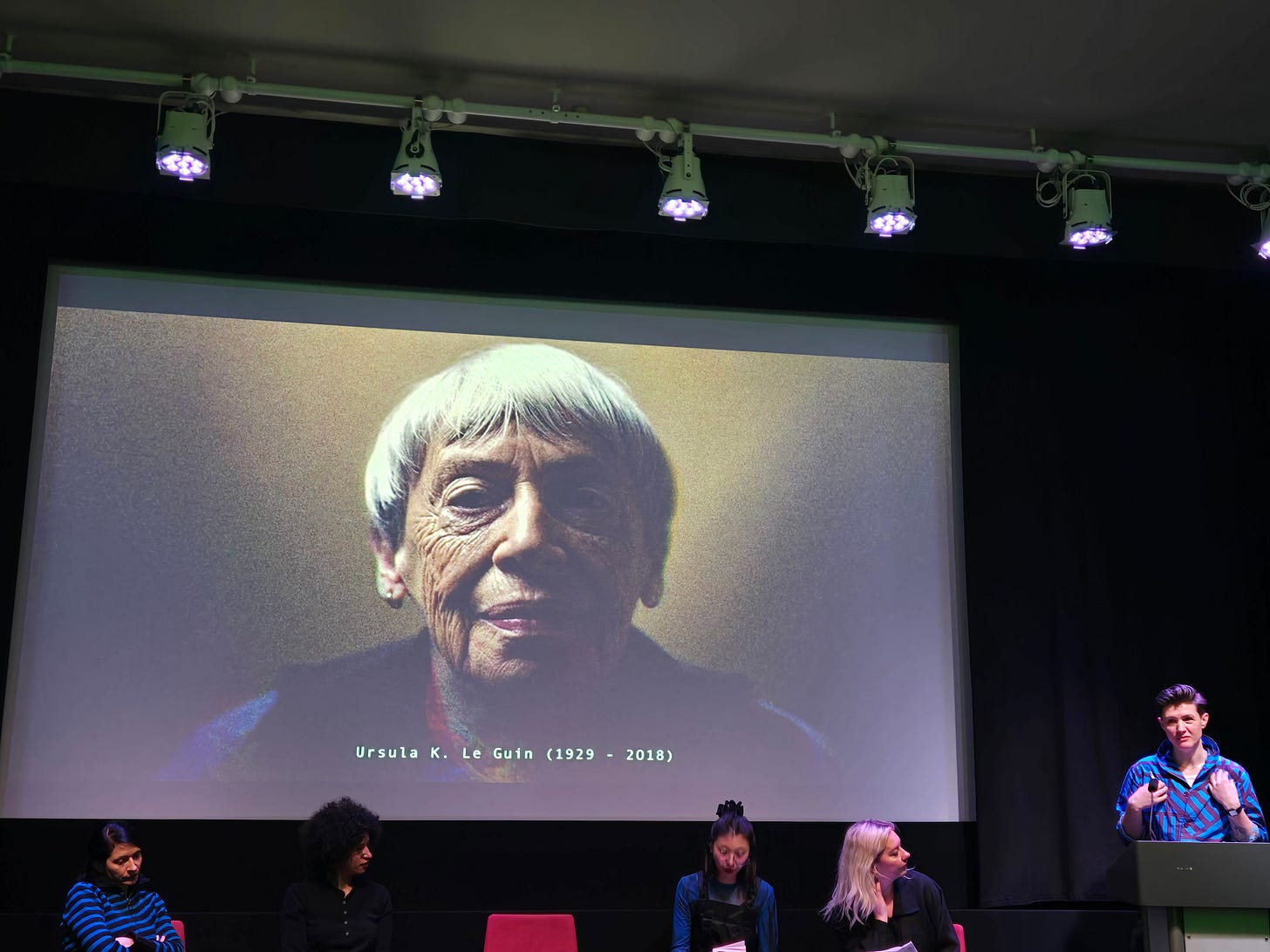
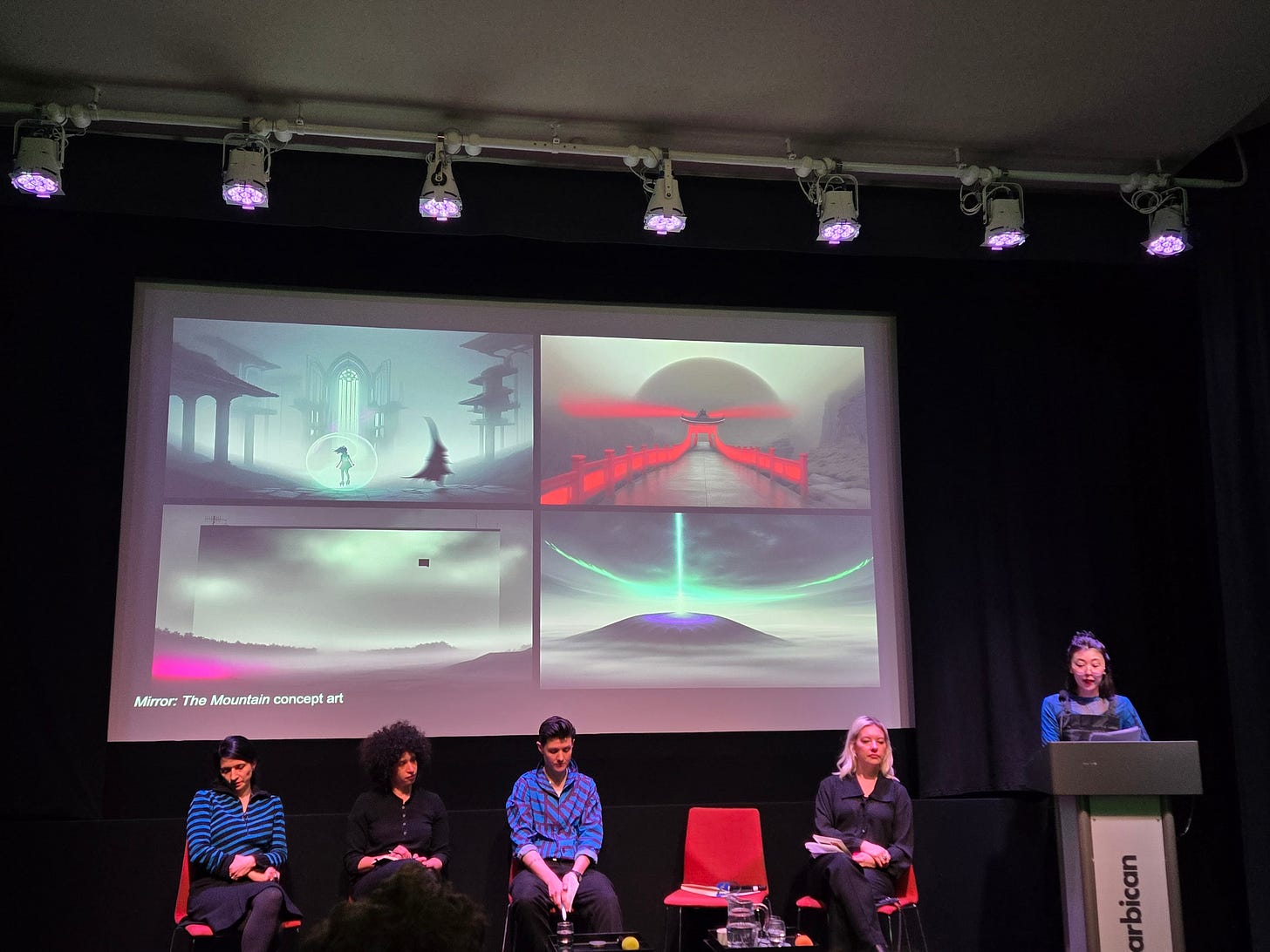
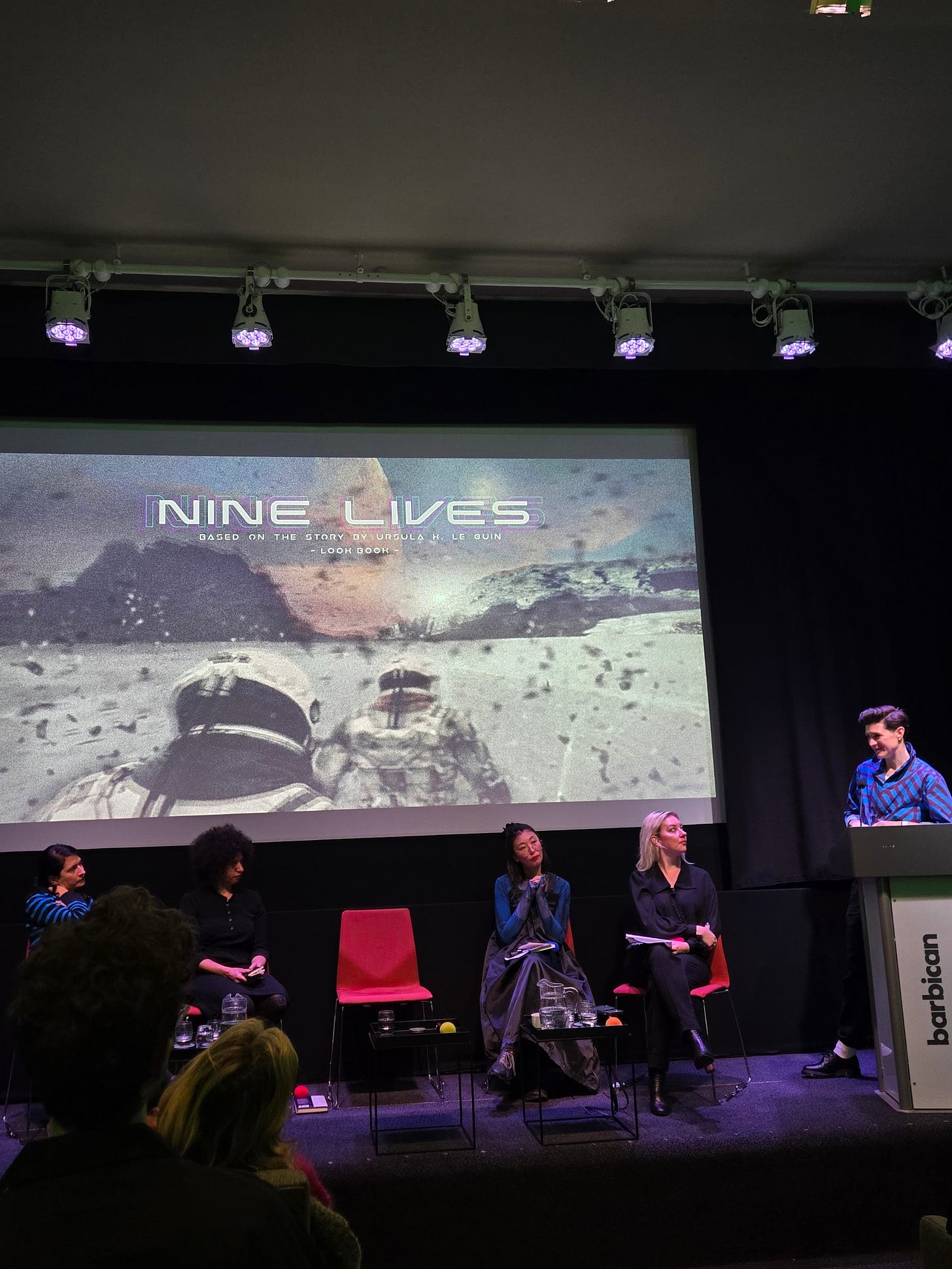
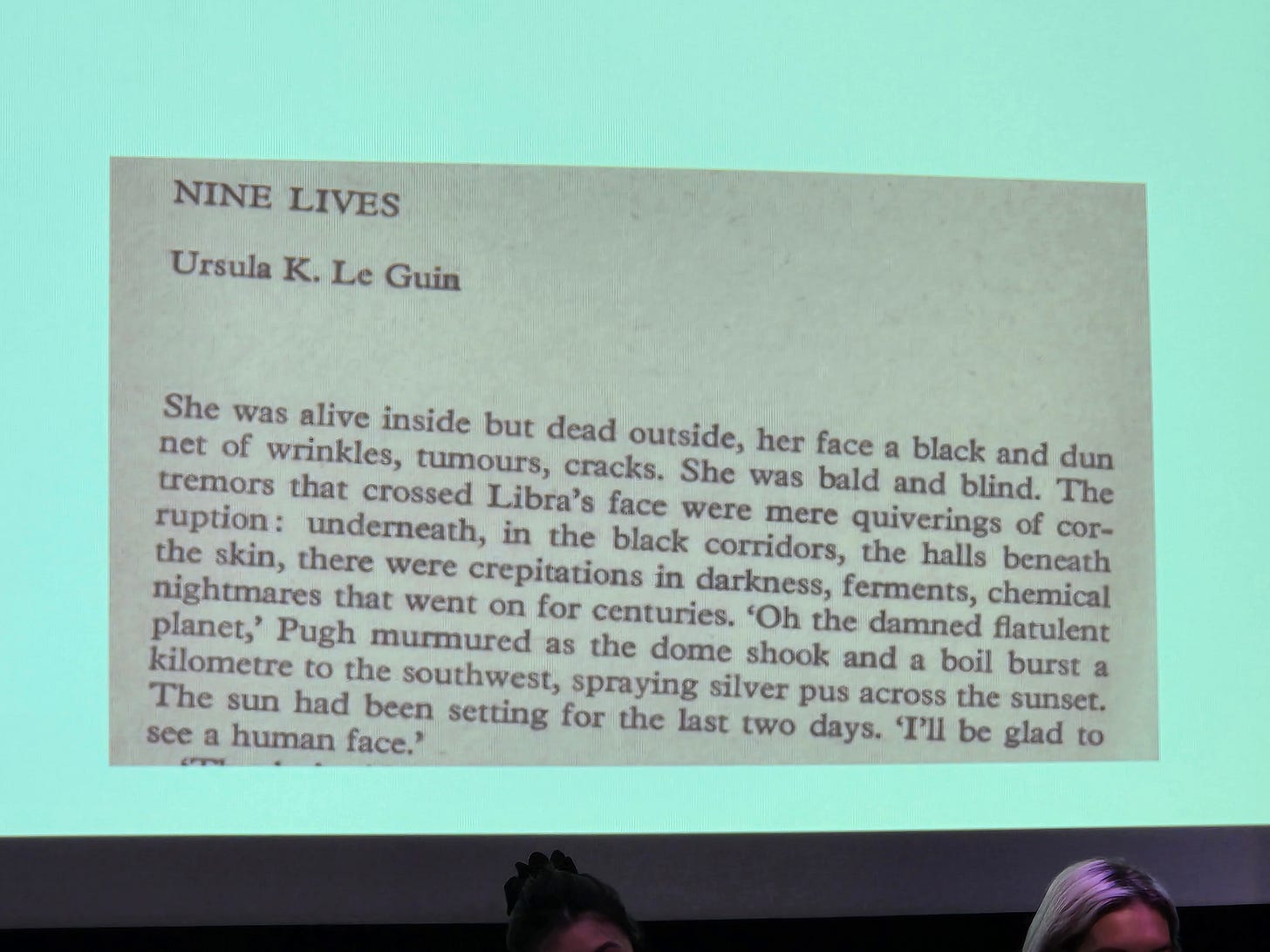
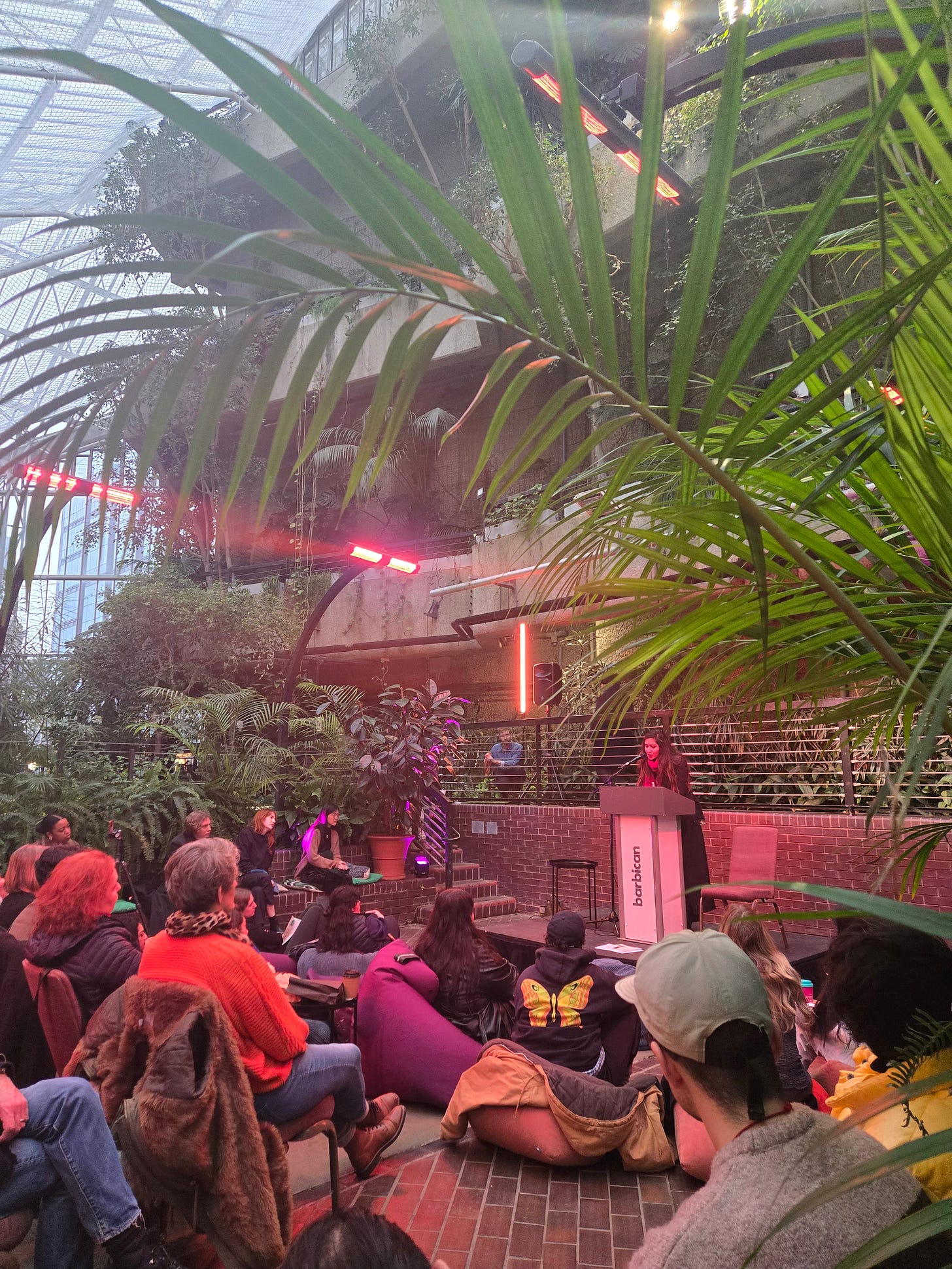
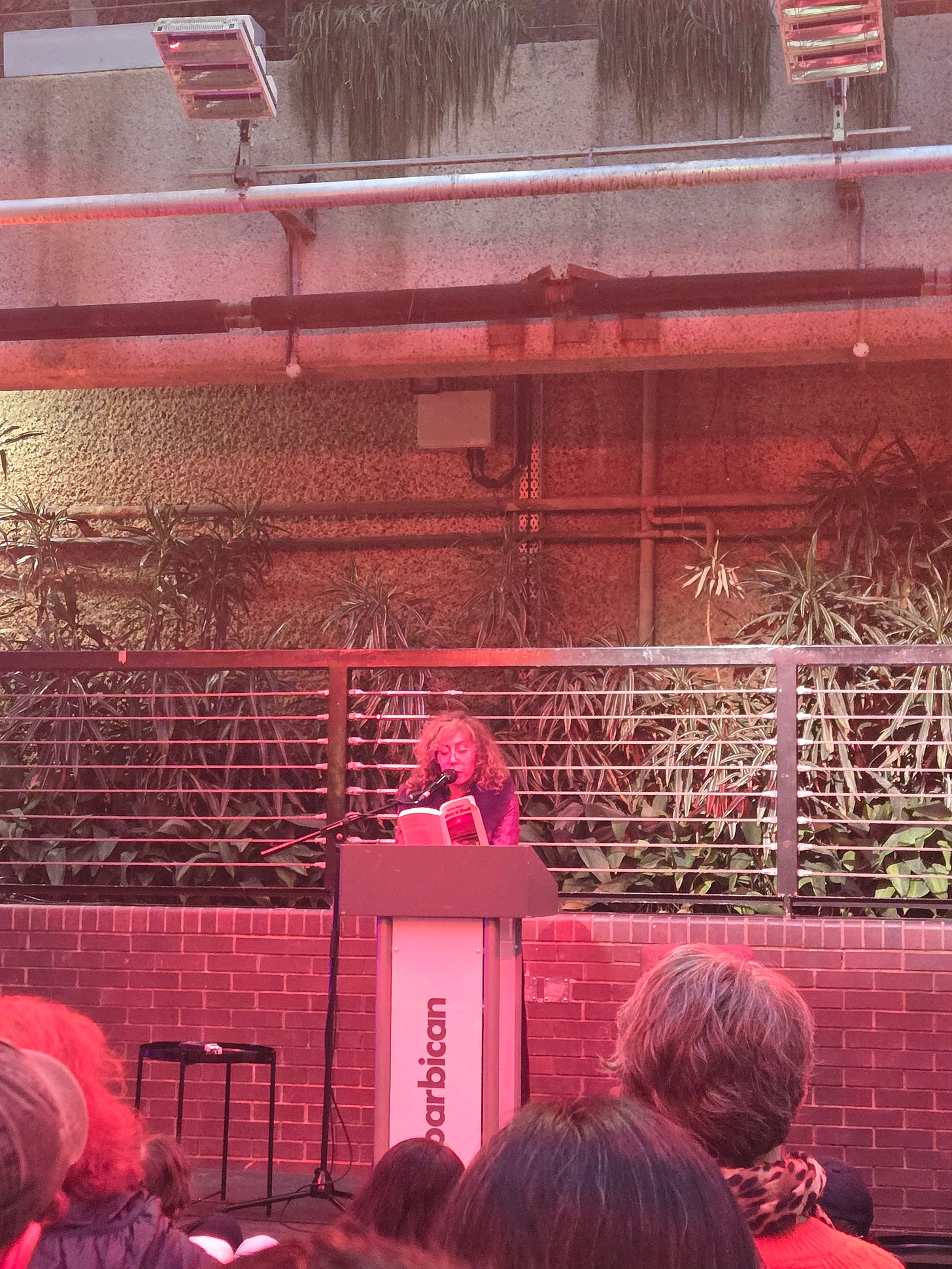
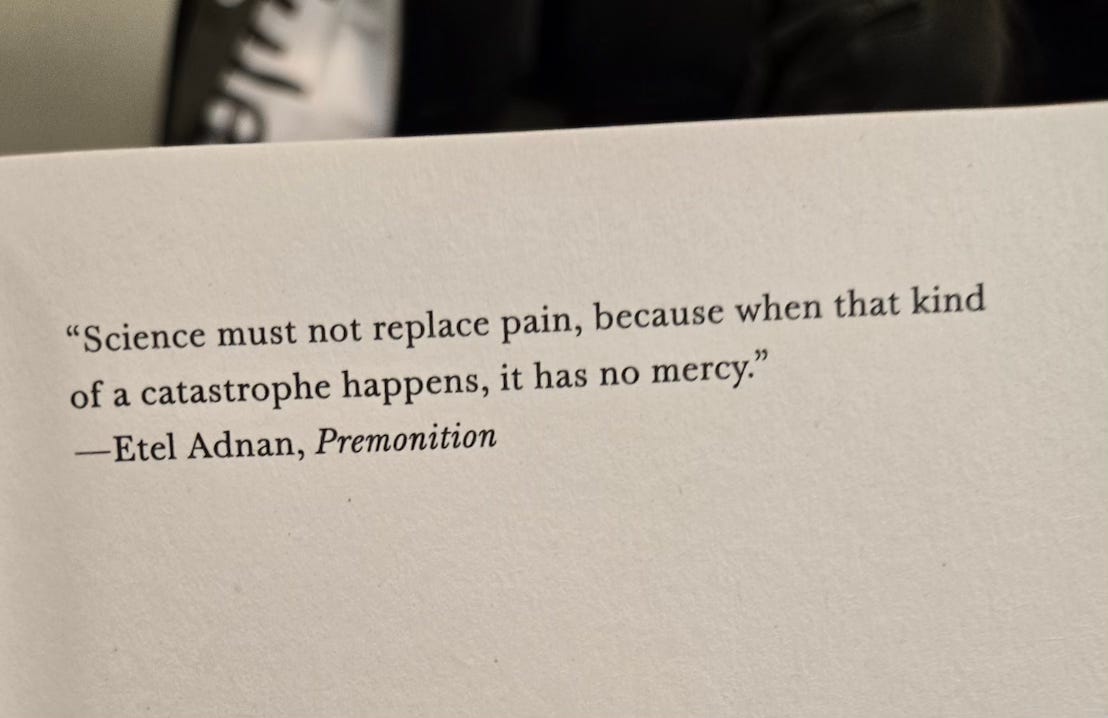
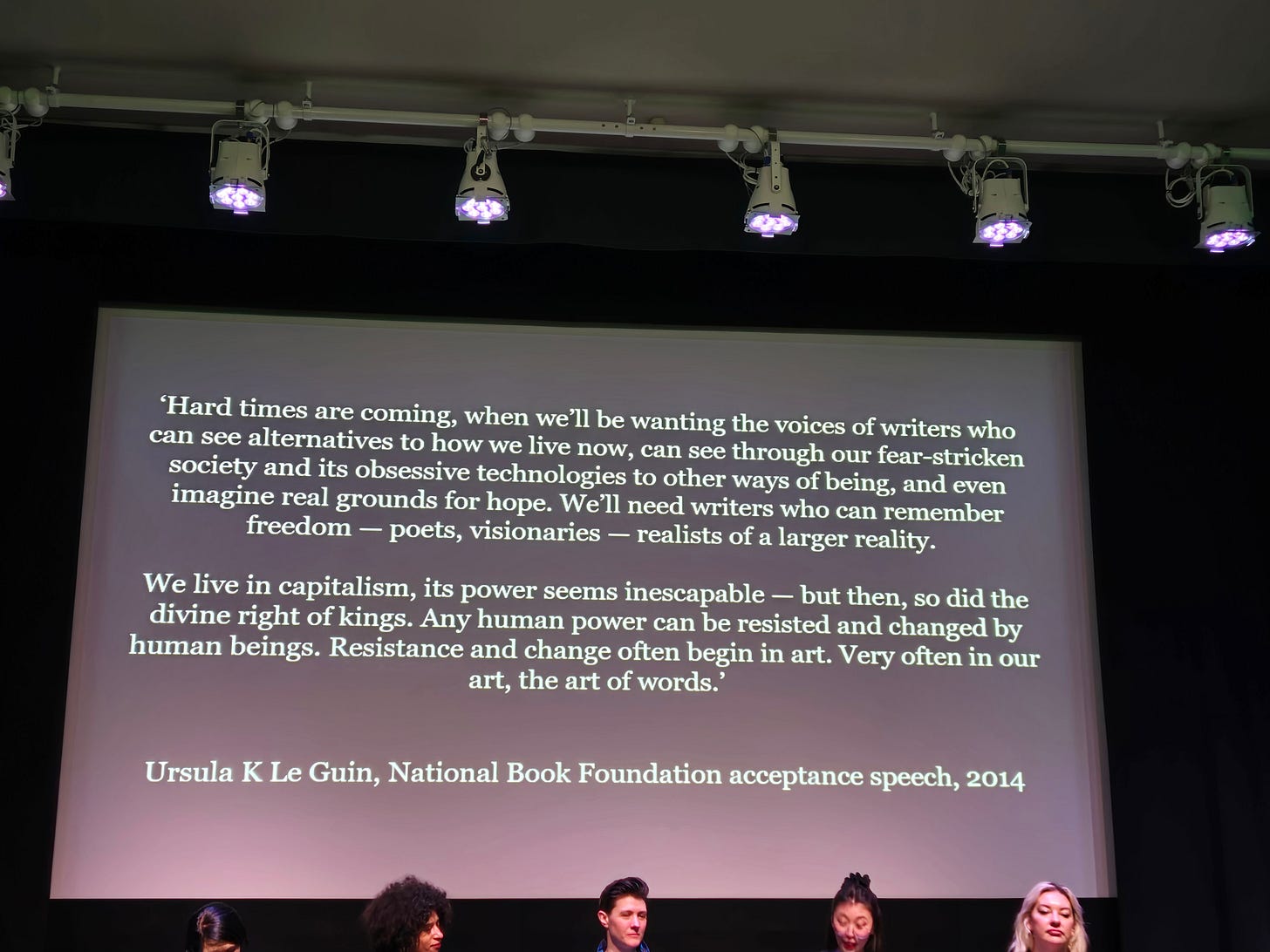
It’s been more than 20 years since I first got my Ursula K. Le Guin book. When I read it, I was left with a deep sense of confusion. So, I re-read it multiple times over the years, and each time, my mind discovered another key to unlock different parts of the story.
I’m thrilled to see this event and to witness so many people unlocking their creativity through words.
The way you describe the event, blending it with your own experiences and thoughts, makes it an exciting read.
Great post; thank you!